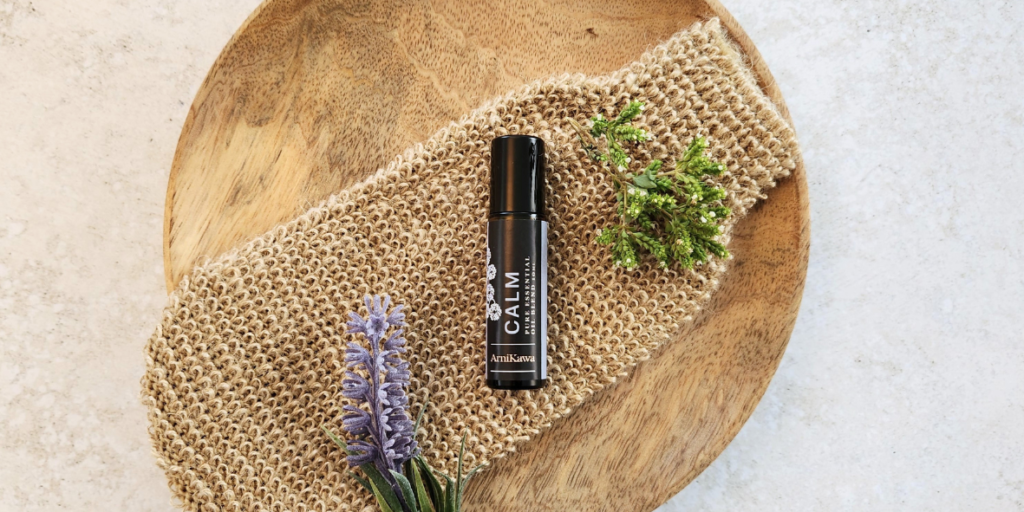
Unwinding Naturally: Harnessing the Power of Essential Oils for Stress and Anxiety Relief
Share
Essential oils have been used for thousands of years to promote health and well-being, with modern research beginning to uncover the science behind their therapeutic benefits. In particular, the use of essential oils applied topically or inhaled can offer significant relief for stress and anxiety, with frankincense and lavender standing out for their potent effects. This article explores how essential oils, especially when applied topically, can be a powerful tool in managing stress and anxiety, supported by scientific studies and facts.
The Science Behind Essential Oils for Anxiety and Stress Relief
Essential oils are concentrated extracts from the leaves, flowers, stems, and roots of plants, containing the essence of the plant’s fragrance. They interact with the body in several ways, primarily through the skin when applied topically and through the olfactory system when inhaled. These interactions can have profound effects on the body’s stress response, including the potential to lower cortisol levels, a key stress hormone.
One of the primary ways essential oils exert their effects is through the limbic system, the part of the brain that controls emotions, mood, and memory. Inhalation of essential oil molecules can trigger the release of neurochemicals in the brain, such as serotonin and dopamine, which play a crucial role in mood regulation and stress management.
Oils For Stress and Anxiety
In the realm of natural health and wellness, essential oils have carved out a significant niche, particularly in the management of stress and anxiety. These potent botanical extracts offer a holistic approach to soothing the mind and body, with an array of scientific studies underscoring their effectiveness. Among the most notable for their calming properties are frankincense, lavender, chamomile, ylang ylang and wild orange. This exploration delves into how these essential oils, whether applied topically or inhaled, can significantly contribute to lowering stress response.
A promising, natural avenue for stress and anxiety relief.
Topical Application
In the realm of natural health and wellness, essential oils have carved out a significant niche, particularly in the management of stress and anxiety. These potent botanical extracts offer a holistic approach to soothing the mind and body, with an array of scientific studies underscoring their effectiveness. Among the most notable for their calming properties are frankincense, lavender, chamomile, ylang ylang and wild orange. This exploration delves into how these essential oils, whether applied topically or inhaled, can significantly contribute to lowering stress response, supported by scientific evidence.
Frankincense: The King of Oils
Frankincense, derived from the resin of the Boswellia tree, has been revered for centuries for its extraordinary health benefits. Scientific investigation into frankincense has revealed its potent anti-inflammatory and anxiety-reducing properties. A study published in the Journal of Ethnopharmacology highlighted its ability to alleviate anxiety, attributing these effects to its active compounds, which can cross the blood-brain barrier to exert a calming influence on the central nervous system. Moreover, research suggests that the topical application of frankincense oil may enhance the skin’s absorption of its anxiety-reducing compounds, offering a dual route of relief when also inhaled.
“The ancient wisdom encapsulated in these essential oils remains a relevant and powerful ally in the quest for balance and tranquility.”
Lavender: A Soothing Balm
Lavender oil is perhaps the most well-documented essential oil for stress and anxiety relief. Its widespread acclaim in aromatherapy is backed by a solid body of research. A landmark study published in Phytotherapy Research demonstrated that inhalation of lavender oil significantly reduced cortisol levels, a key stress hormone, in participants. These findings are complemented by research showing that topical application of lavender oil can have a similar calming effect, making it a versatile option for stress reduction.
Ylang Ylang
Ylang-ylang is known for its soothing and uplifting scent. It has been found to decrease blood pressure and stress levels, likely due to its ability to reduce cortisol production and enhance mood. A study in the Journal of the Korean Academy of Nursing found that ylang-ylang oil, along with lavender and bergamot, effectively reduced stress and anxiety levels in nurses.
Wild Orange: A Burst of Calm
Wild orange essential oil is celebrated for its uplifting and calming effects. The inhalation of wild orange oil has been found to be effective in reducing anxiety and improving mood. This citrus oil, when applied topically, not only permeates the skin to provide localized effects but also offers the added benefit of engaging the senses directly through its refreshing aroma, making it a powerful ally against stress and anxiety.
The Science of Absorption and Effect
The efficacy of essential oils, both inhaled and applied topically, lies in their ability to interact with the body’s limbic system, responsible for emotions, memory, and stimulation of the autonomic nervous system. Topical application, in particular, allows for the oils to be absorbed through the skin and enter the bloodstream, where they can then exert systemic effects, including the reduction of cortisol levels.
Furthermore, the act of massaging these oils into the skin can itself be a therapeutic ritual, reducing physical tension and fostering a moment of mindfulness. Essential oils can thus serve as a potent tool in a comprehensive stress management strategy, offering both immediate relief and long-term benefits through regular use.
The topical application and inhalation of essential oils offer a natural, holistic approach to managing stress and anxiety. Frankincense and lavender, in particular, has been scientifically validated for its ability to lower cortisol levels and promote a sense of calm. As research continues to evolve, the use of essential oils as a complementary therapy for stress management gains more empirical support, highlighting their significance in both traditional and modern medicine. For those seeking natural ways to cope with stress and anxiety, essential oils offer a promising solution.


